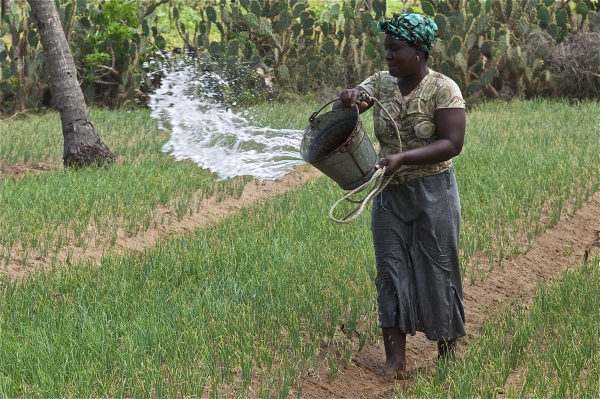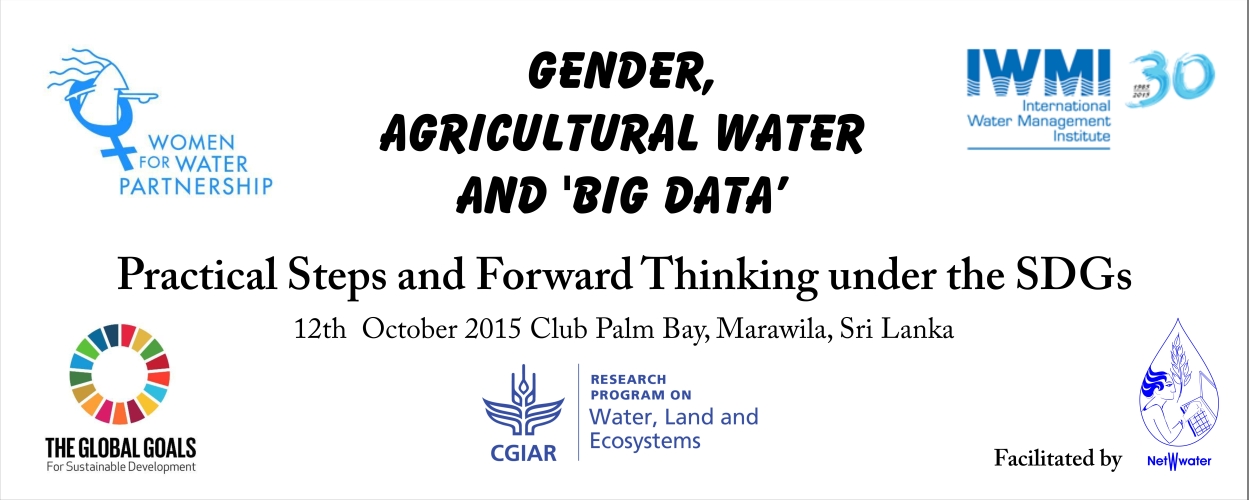There is water on Mars, the 17 Sustainable Development Goals and have been launched and now Theme GP is kicking off this GovGenPov blog! All in the space of a week. Welcome. This blog captures critical knowledge and action stemming from our work, the work of those we partner with and deriving from events and occasions we believe should be marked because of their global significance to water management. One such event is World Food Day on the 16th October. This year we’re marking the event — and week it inhabits — in a small way but with big ambition.
It’s all about what we know and how we know it. On Monday we’re co-convening an event in Sri Lanka with the Women for Water Partnership [add screen grab of banner] entitled ‘Gender, Agricultural Water and ‘Big Data’ — Practical Steps and Forward Thinking under the SDGs’. With participants from over 20 countries spanning Asia, Africa, Europe, and Latin America we’ll explore how to set up a process to improve knowledge and data on gender and agricultural water. Why is this important? Simply put, over 70% of water abstracted goes to produce our food and fibre requirements and as these grow in the coming years pressures on water resources and those using these resources will increase drastically.

Gender is a key component in power relations and governance surrounding the relationships that will develop as these pressure grow — we need to know what’s happening on the ground, what policy options are important to develop and how the practice of water management can be improved to achieved more gender-equitable outcomes. Then on Wednesday, we’re in Addis Ababa with a group of experts holding a roundtable on a similar theme, but with a specific focus on basin-level understanding of how gender-disaggregated data can be sourced and used most effectively. Finally, we reach World Food Day itself and with the Nile Basin Initiative, we are convening a final stakeholder consultation in Entebbe with a focus on practical support to the NBI and other institutions that try and generate basin-wide benefits for peoples and ecosystems sharing a single resources through better water management at all scales.Without basin-wide approaches, the capacity of the Nile and other systems to generate the kinds of increases required in food production for a hungry 9 billion people by 2050 will be severly curtailed.
So, please join us in reading and contributing to this blog. For further information please contact j.paris@cgiar.org
Alan Nicol
Theme GP Leader


